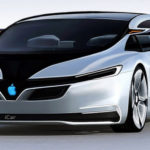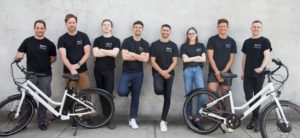US automakers are grappling with plummeting EV demand, exacerbated by inadequate charging infrastructure and a lack of awareness about electric vehicle benefits, as evidenced by the recent struggles of Fisker Automotive and strategic shifts at Rivian Automotive.
A recent study by JD Power reveals a decline in the number of US buyers considering an electric vehicle purchase in 2024. The primary reasons include a shortage of affordable electric vehicles, inadequate charging infrastructure, and a lack of awareness about EV benefits.
Stubborn inflation, high interest rates, and limited growth in model availability have further dampened EV demand in the United States. US automakers have invested billions in developing new electric vehicle models and ramping production. However, softened demand over the last few quarters has forced some companies to slow down their plans.
In April, EV leader Tesla reported its first quarterly revenue drop since 2020, when the COVID-19 pandemic disrupted production and deliveries. The same month, Ford Motor recorded a $1.3 billion operating loss in its EV and software division.
The JD Power study showed that 24 percent of prospective vehicle buyers are “very likely” to consider purchasing an electric vehicle in 2024, down from 26 percent a year ago. Those “overall likely” to consider an EV purchase this year decreased to 58 percent from 61 percent in 2023. Notably, 40 percent of shoppers do not fully understand EV incentives, contributing to the decline in interest.
Startups Struggle Amidst Declining Demand
Fisker Automotive, a prominent EV startup, filed for Chapter 11 bankruptcy protection, citing fundraising problems, low sales rates, and supply chain management issues. Despite efforts to boost demand for its Ocean electric SUV through job cuts and dealer engagement, the company could not sustain its operations.
Other EV startups in the United States also adapt to these market challenges. Rivian Automotive has slowed manufacturing processes to cut costs and meet profit targets. Like Tesla, Rivian’s strategy includes launching cost-effective versions of its cars without engaging in price cuts.
Lucid Group plans to reduce its workforce by up to six percent after six straight quarters of declining revenue. To stimulate demand, Lucid lowered the base price of its Lucid Air Pure model and offered customers free maintenance and charging credits. Looking ahead, Lucid aims to launch its Gravity SUV at $80,000 per unit by the end of the year and a mid-size car at $50,000 per unit by late 2026.
Adapting to Market Realities
Meanwhile, Nikola has shifted its focus to hydrogen-fuel cell Class 8 trucks after facing production and sales issues with battery-electric trucks. Despite financial challenges, Nikola aims to sell up to 450 trucks for $170 million by 2024.
These strategic adjustments by US automakers highlight their efforts to navigate the market’s subdued demand and intense competition. By cutting costs, improving products, and managing resources effectively, these companies aim to stay resilient in the evolving EV industry.
Follow USTechTimes on Facebook, Twitter and Linkedin for in-depth news of market trends, funding updates, and regulatory changes affecting startups in USA.
We Recommend:
- EV charging infrastructure provider startup TeraWatt bags $1 billion
- Rivian may become the biggest U.S. market entrant on the IPO list this year
- Sion Power Raises $75M in Series A Funding for Breakthrough Lithium-Metal Battery Technology
- Lucid And Rivian are Giving Tesla a Run for its Money
- Zumper, San Francisco-based apartment listing startup grabs $30 million

































